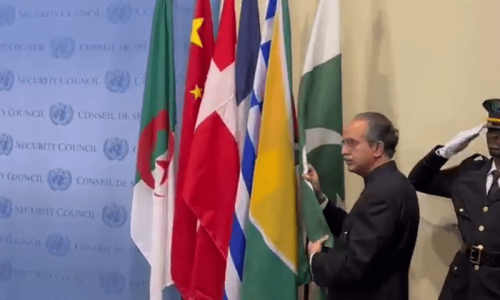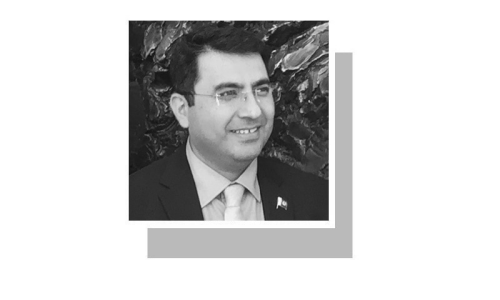THE Middle East is geopolitically and economically perhaps the most important region of the world, home to much of the globe’s energy supplies, and also one of its most unstable areas. In the postcolonial era it has hardly seen peace, with one war after the other shattering any chance of normality. Much of these disturbances are due to the involvement of the erstwhile colonisers, such as the UK or France, or of new ‘empires’, such as the US, the world’s sole superpower, or its regional clients, namely Israel. Moreover, a lack of representative rule in most states has created a dystopian situation, with the region’s people craving political and social freedom. Much of this ferment gave way to 2011’s Arab Spring, though the people’s desire for democracy was quickly snuffed out by the anciens régimes, in many cases backed by the self-declared champions of democracy in the West.
Perhaps the sorry plight of the people of the Middle East, particularly the Arabs, was best illustrated by the merciless pounding of Gaza by Israel last month, when Tel Aviv unleashed its brute force against the defenceless Palestinians in full view of a global audience. This sad spectacle has become a recurring nightmare for the Palestinians, with few states having the courage to confront Israel for its brazen crimes. While Benjamin Netanyahu, who oversaw the recent butchery in Gaza, was sent packing on Sunday due to internal tumult in Israeli politics, will Naftali Bennett, his successor as prime minister, prove to be a peacemaker? One should not bet on it; after all the American-origin Mr Bennett is a major advocate of illegal settlements, alongside being a hawk where the Palestinians are concerned.
The fact is that unless Israel’s patrons in the West, as well as its newfound friends in the Arab world, put pressure on the Zionist state to stop indulging in the mass murder of Palestinians every few years, there will be little chance of reviving the long-dead Arab-Israeli peace process. And unless the Palestinian question is resolved judiciously, the cycle of violence will continue indefinitely. Israel must also be reined in and prevented from violating the sovereignty of regional states such as Syria and Lebanon, where Tel Aviv feels it has to target Iranian forces and their proxies. However, such foolhardy behaviour on the part of Israel can spark a much bigger confrontation, which is why the international community must keep an eye on Tel Aviv’s trigger-happy activities and prevent it from spoiling regional peace. Apart from restraining Israel, the states of the Middle East should themselves agree to respect each other’s sovereignty and prevent outsiders from meddling in the region’s affairs. Saudi Arabia and Iran can lead this effort, which could help stabilise Iraq, Yemen, Syria and Lebanon, where both sides have been indulging in proxy conflicts.
Published in Dawn, June 15th, 2021











































